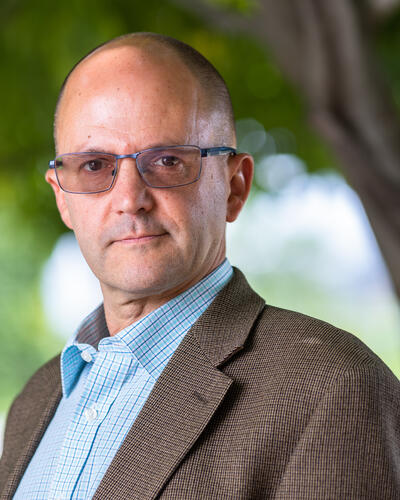Dr. Geiser-Getz teaches courses related to argumentation, rhetoric, and cultural criticism. He was hired in 2018 to serve as our vice provost and joined the communication department starting in the fall of 2022. During his career, he has worked at a variety of institutions including East Stroudsburg University (Pennsylvania), St. Petersburg State University (Russia), and Keene State College (New Hampshire). His scholarship focuses on how audiences construct meaning from the varied texts of modern culture in both expected and unexpected ways. Dr. Geiser-Getz has a special interest in presidential rhetoric, reality-based television, and intercultural communication. He has taken students on study trips to a variety of international destinations and recommends study abroad to all of his students. He grew up in Alaska and plays the ukulele.

Classes
-
COMN 102: Principles of Public Speaking
Basic public speaking is the focus of the course. Emphasis is placed on researching topics, organizing speeches, using appropriate language, effective delivery, and critical listening. Instructors analyze student speeches.
-
COMN 222: Topic: Pop Culture Criticism
This course is a slot course that is designed to introduce students to theories, topics, and issues related to specialized or emerging topics in communication. Students will develop knowledge of related concepts, engage with readings related to the specific topic, and demonstrate their knowledge through one or more topic-centered projects. Examples of special topics include gender communication and political communication.
-
INTD 204: Livingston CARES Service Lrng
This connecting course is limited to participants in faculty/staff led Livingston CARES Service Learning trips occurring throughout the academic year and summer. The participants will have an opportunity to extend their service learning experience through analysis of core and self-selected texts, personal reflection, participation in focused conversations, and a summative critical paper on the experience.